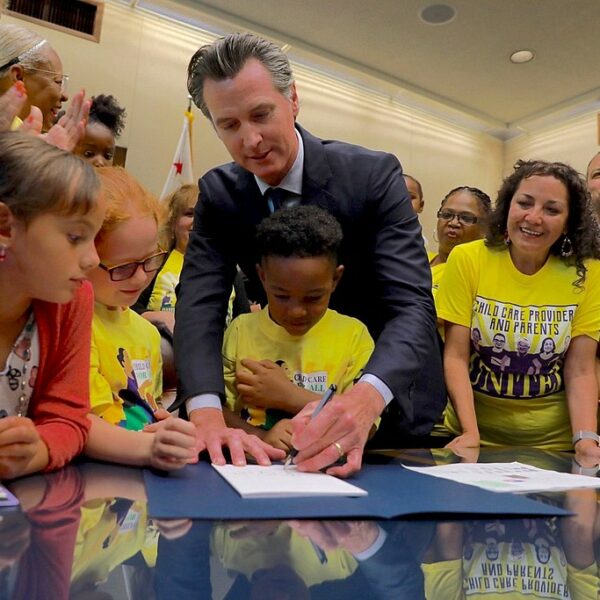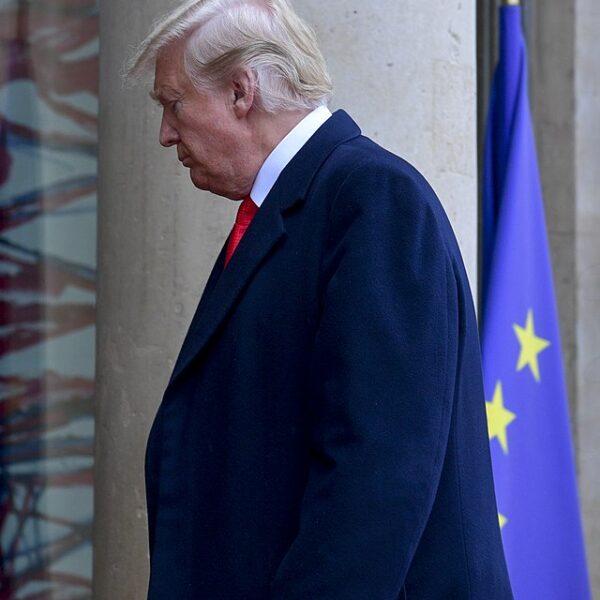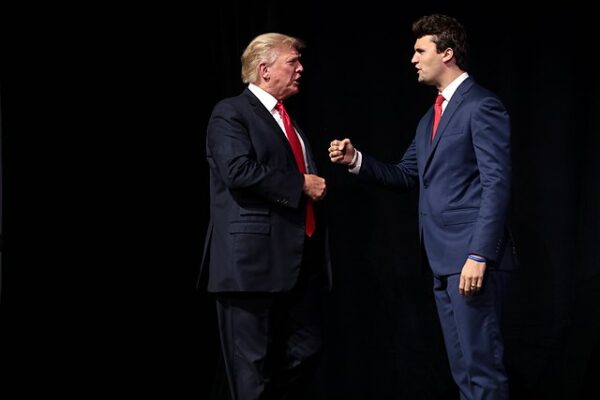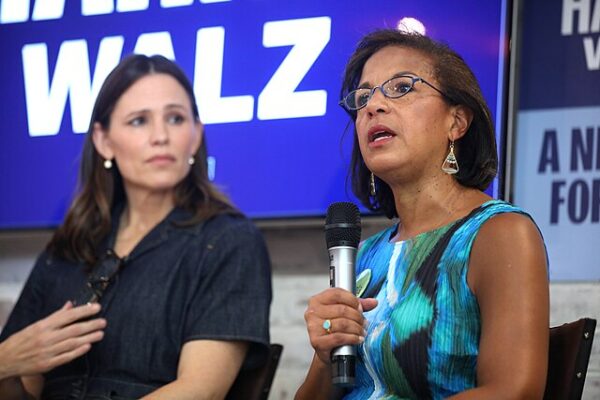
Nancy Pelosi is done. The only Speaker of the House to do so poorly that she lost the majority to the opposing party twice has announced she will not seek a leadership spot in the upcoming new Congress.
For the first time in history, Democrats may have a House leader who was born after the end of World War II. “On May 8, 1945, World War II in Europe came to an end. As the news of Germany’s surrender reached the rest of the world, joyous crowds gathered to celebrate in the streets, clutching newspapers that declared Victory in Europe (V-E Day),” writes the World War II Museum. “Later that year, US President Harry S. Truman announced Japan’s surrender and the end of World War II. The news spread quickly and celebrations erupted across the United States. On September 2, 1945, formal surrender documents were signed aboard the USS Missouri, designating the day as the official Victory over Japan Day (V-J Day).”
There has been no word from Republicans whether or not they have taken to calling November 17 Victory of Pelosi or V-P Day.
NPR reported on the speech she gave on the House floor: “With great confidence in our caucus, I will not seek reelection to Democratic leadership in the next Congress. For me the hour has come for a new generation to lead the Democratic caucus that I so deeply respect ” Pelosi said in a speech on the House floor. “I’m grateful that so many are ready and willing to shoulder this awesome responsibility.”
In her remarks, Pelosi warned that democracy is “majestic, but it is fragile” and said voters in 2022 sent a message to Congress that they would not support those who supported violence or insurrection. She also applauded the chamber for becoming more diverse over the course of her 35 year career. When she first entered Congress in 1987 there were 12 women in the Democratic Caucus and now there are 90. “And we want more,” she said, to applause.
Her decision comes as no surprise on Capitol Hill, and is consistent with a promise she made four years ago to self term limit after Democrats won the majority in 2018 and she became the first speaker since the legendary Sam Rayburn to claim the speakership twice. There has been a quiet desire among rank and file Democrats to elect a younger slate of leaders to replace Pelosi, who is 82, and the two other top House Democratic leaders, Rep Steny Hoyer, D-Md., and Rep. Jim Clyburn, D-S.C., who are also in their 80s.
House Democrats will hold leadership elections at the end of the month, and Pelosi’s announcement is likely to set off a flurry of leadership bid announcements. It is unclear if Hoyer and Clyburn will try to remain at the leadership table, but there is no shortage of lawmakers ready to replace them. Like Pelosi both men have deep respect from the caucus, but as one House freshman Democrat told NPR, “it’s time for generational change.”
“The plans of Pelosi’s two long-time deputies, House Majority Leader Steny Hoyer (D-Md.) and House Majority Whip Jim Clyburn (D-S.C.), also became clear immediately after Pelosi’s speech.
Clyburn, who remains close to the Biden administration, will seek a top elected position — assistant to the minority leader — and Hoyer will not seek a leadership position, but will also remain in Congress as a rank-and-file member, according to multiple people familiar with the decision,” according to Politico.
Reports say that “Pelosi’s most likely successor appears to be House Democratic Conference Chairman Hakeem Jeffries of New York. Jeffries, who was first elected to Congress in 2012, is an astute fundraiser and already has the backing of the Congressional Black Caucus.
Other potential contenders, include Hoyer and House Intelligence Committee Chairman Adam Schiff, D-Calif. Schiff has been laying the groundwork for a bid for months, but is also possibly eyeing a Senate run in his native California if Democratic Sen. Dianne Feinstein retires in 2024.”
Schiff has been particularly active in trying to claim the top spot in the House.
Fox News explained the amazingly tight grip over the Democrats that Pelosi has had: “In the 20-year period since Pelosi has served in leadership, several Democratic rising stars and would-be successors have lost re-election or left Congress to pursue other possibilities.
President Biden’s Health Secretary Xavier Becerra, for instance, was pegged as a potential Pelosi successor before leaving Congress in 2017 to become California’s attorney general. Others, like New York Rep. Joe Crowley, were defeated in primary or general election campaigns.”
USA Today summarized Pelosi’s career: “Supporters and detractors can sharply disagree on the wisdom of the policies Pelosi has pursued, but there is no debating the impact of her groundbreaking tenure. Congressional scholars rate her as one of the most consequential speakers in the nation’s history, a legislative master in the company of Henry Clay and John Calhoun and Sam Rayburn.
During the 2008 financial meltdown, she pushed through an unpopular bank bailout that economists say averted a looming recession, in the process rescuing a Republican president, George W. Bush. She muscled through Barack Obama’s signature Affordable Care Act when even senior officials in his White House were ready to curtail their ambitions.
She became the face of Democratic opposition to Donald Trump during his presidency, the crucial decision maker in proceeding with impeachment proceedings not once but twice.
And for decades she has been the favored target of Republican candidates and opposition fundraisers, demonized as a liberal ideologue and caricatured as a devil and a witch. She was a prime intended victim of the Jan. 6 rioters last year and, more recently, of an assailant who broke into her San Francisco home and attacked her husband with a hammer.”
Pelosi said that she would not give up power completely, though. She intends to continue representing San Francisco’s district in the House.
[Read More: Radical Judge Reinstalls Roe v Wade In Georgia]











